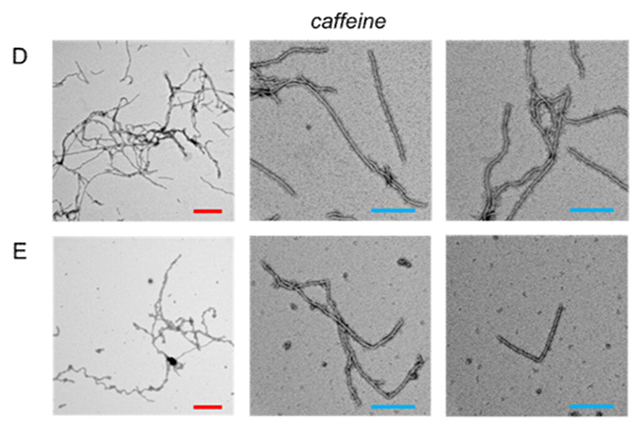The key components of espresso coffee may protect against the protein clumping in the brain associated with Alzheimer's disease, a new study on laboratory samples shows, giving scientists an exciting new treatment avenue to explore.
While it's not clear exactly how Alzheimer's starts or develops, aggressive aggregations of a protein called tau in the brain – a protein that is perfectly fine in normal amounts – are prime suspects in the case that researchers are keen to question further.
Here, a team from the University of Verona in Italy concentrated on the effects of coffee compounds on tau protein clumps, following previous research that linked coffee and caffeine with protection against cognitive decline.
"These results add insights into the neuroprotective potential of espresso coffee and suggest candidate molecular scaffolds for designing therapies targeting monomeric or fibrillized forms of the tau protein," write the researchers in their published paper.
Nuclear magnetic resonance spectroscopy, a technique where magnetic fields can control and analyze substances at the atomic level, was used to look at the chemical composition of espresso shots. Key ingredients – caffeine, trigonelline, genistein, and theobromine – were chosen for further lab experiments.
Molecules of these compounds were incubated with tau proteins for up to 40 hours. As the concentration of caffeine, genistein, or the entire espresso extract increased, the tau fibrils (protein clumps) got shorter and less likely to form larger groups.

What's more, the experiments showed these shortened fibrils were non-toxic to cells and didn't act as 'seeds' from which further clumping could happen. Caffeine and the espresso extract were also shown binding to preformed tau fibrils, suggesting they could be used to interact with existing clumps and prevent new ones.
Applying coffee compounds directly to the tau proteins is not how it will work within our bodies. The drink will first be processed in our digestive systems, and while some of these compounds are known to cross the blood-brain barrier, like caffeine, many other complex chemical interactions inside our bodies may not make these effects direct.
The researchers admit there's much more work to do here, but they're hopeful that these results can eventually lead to preventative or therapeutic treatments for Alzheimer's and other brain diseases where cognitive ability is affected.
Current treatments are still unable to reverse or prevent Alzheimer's, though experts are constantly progressing in their understanding of it, whether with drugs that can slow it down or lifestyle changes that can delay symptoms.
As for coffee and its ingredients, there's a lot more to it than giving us that jolt of alertness in the morning. It's previously been linked to reducing the risk of cancer and the risk of liver disease, for example; just don't drink too much of it.
"We have presented a large body of evidence that espresso coffee, a widely consumed beverage, is a source of natural compounds showing beneficial properties in ameliorating tau-related pathologies," write the researchers.
The research has been published in the Journal of Agricultural and Food Chemistry.
